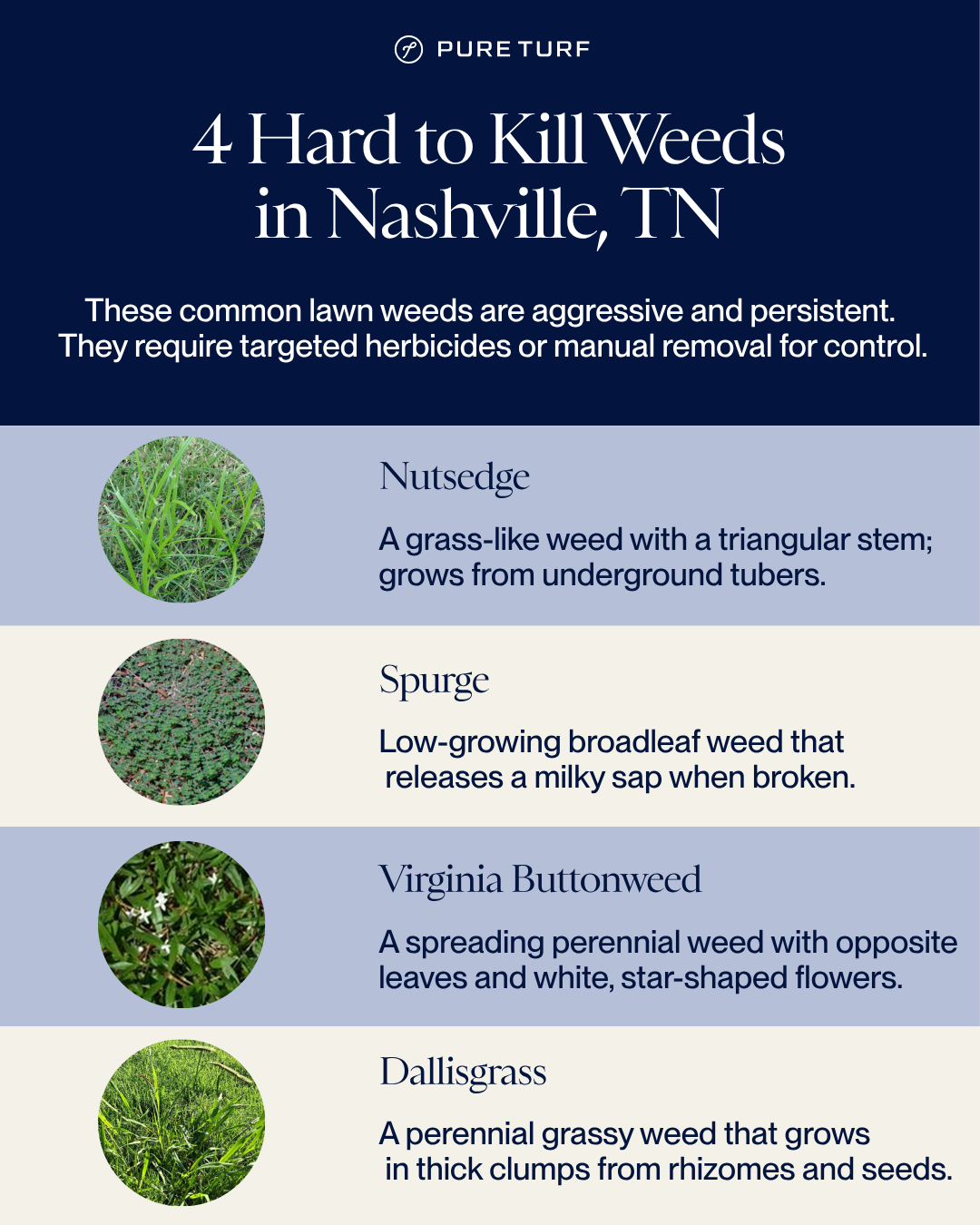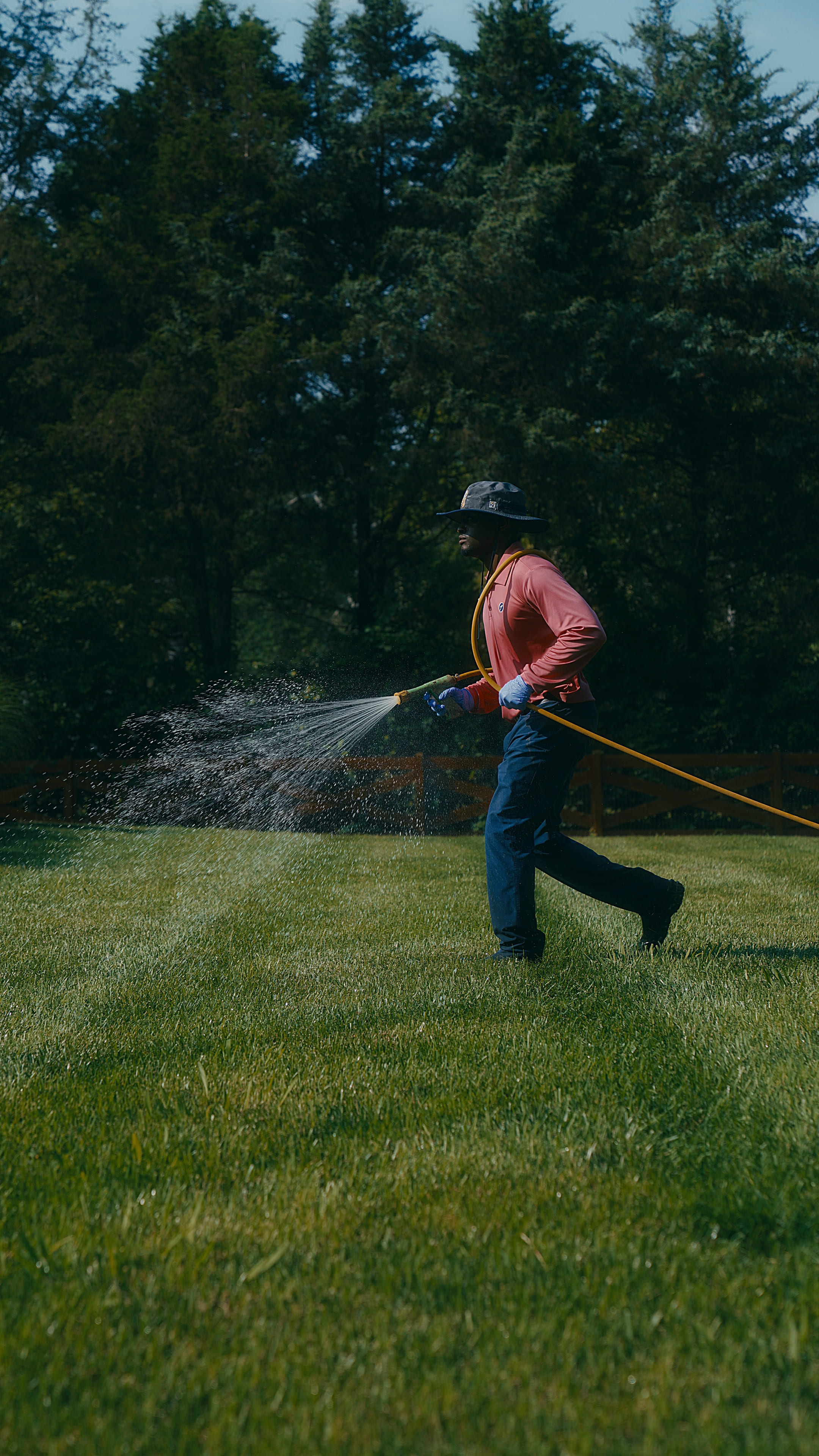.jpg)
Some weeds aren’t just a nuisance — they’re relentless. If you’ve been battling the same patches of strange-looking grass, fast-spreading groundcover, or thick clumps that won’t go away, you’re not alone. Tennessee lawns, especially in the Nashville area, are highly prone to a handful of persistent weed species that require more than a one-time spray.
In this post, we’re breaking down four of the toughest lawn weeds we see in Middle Tennessee: nutsedge, spurge, Virginia buttonweed, and Dallisgrass. Learn what they are, why they’re so hard to kill, and how to treat them effectively.

What These 4 Weeds Have in Common
Sedge (nutsedge), spurge, Virginia buttonweed, and Dallisgrass all share the following traits:
- Hard to control in Southern lawns due to rhizomes, tubers, or prolific seeding
- Thrive in stressed lawns with compacted soil or poor drainage
- Require targeted herbicides — general weed killers often don’t work
- Tend to return season after season if not treated consistently
1. Nutsedge (Sedge)
- Grass-like weed with sharp, triangular stems
- Grows faster and taller than turfgrass
- Thrives in wet or poorly drained areas
- Spreads by underground tubers called “nutlets”
- Requires sedge-selective herbicides (e.g., halosulfuron or sulfentrazone)
2. Spurge
- Broadleaf weed that grows low to the ground
- Spreads quickly by seed
- Produces a white, milky sap when broken
- Prefers hot, dry, compacted lawns
- Can usually be treated with standard broadleaf herbicides
3. Virginia Buttonweed
- Perennial broadleaf weed with opposite leaves on square stems
- Spreads through seeds, root fragments, and rhizomes
- Common in moist, poorly drained areas
- Blooms with small white or pink star-shaped flowers
- Requires repeated post-emergent herbicide treatments with products containing 2,4-D, dicamba, carfentrazone, or metsulfuron
4. Dallisgrass
- Coarse, clumping perennial grass weed
- Grows from rhizomes and reseeds aggressively
- Seed heads grow from the side of stems, resembling crabgrass
- Thrives in thin or overwatered turf
- Control involves a mix of pre-emergent herbicides in late winter and spot-treating with post-emergent products during the growing season
How to Kill These Weeds in Nashville
If you’re wondering how to kill weeds in your Nashville lawn, here’s your plan:
- Correctly identify the weed species
- Improve lawn conditions with aeration, drainage fixes, and proper mowing
- Use the right herbicide for each type (sedge, broadleaf, grassy)
- Repeat treatments as needed — many of these weeds require multiple applications
- Get help from a lawn care professional for persistent or widespread issues

References
- LSU AgCenter: Virginia Buttonweed Management
- The Spruce: How to Get Rid of Dallisgrass
- SuperSod: Dallisgrass Management
- Turf Gator: What is Nutsedge?
- Essential Home & Garden: Get Rid of Nutsedge
- Lawn Love: Virginia Buttonweed Control
- Spring-Green Lawn Care: Buttonweed Blog


.jpg)

